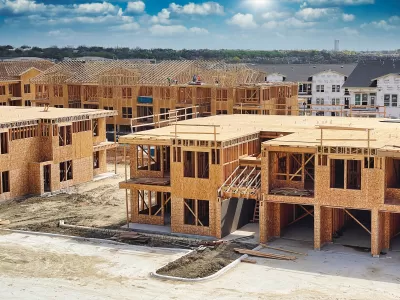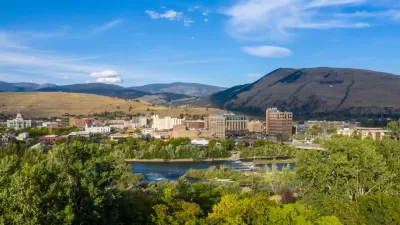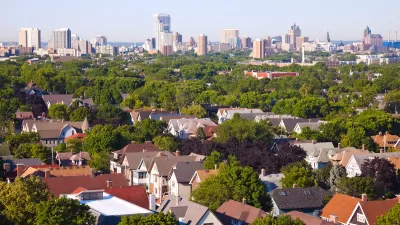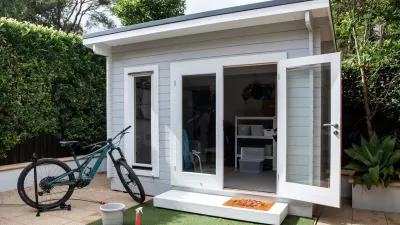Legislators in a state that so often touts its policies as the opposite of California’s defeated several bills that would have made housing construction easier, leading to concerns that a constricted housing market may exacerbate the housing crisis.

For decades, Texas land use and zoning policy has gone in a different direction than much of California, writes Duncan Hosie in an opinion piece for The Dallas Morning News. “Its land use and zoning regulations are less stringent. And affluent homeowners and bureaucrats have less power to block housing. As a result, more housing gets built every year in Texas than anywhere else, and far fewer people are rent burdened.”
But after the failure of several zoning-related bills to pass in the state legislature, Hosie charges Texas state legislators with being “all hat, no cattle” when it comes to their staunch opposition to ‘California-style’ policies, noting that NIMBY obstructionism and the unintended consequences of the California Environmental Quality Act (CEQA) have led to one of the nation’s worst housing crises.
The Texas bills in question would have permitted accessory dwelling units (ADUs), reduced minimum lot-size regulations, and “curbed so-called compatibility restrictions that limit the height of apartment buildings near single-family homes.” Hosie writes that “Disturbingly, many Democrats and Republicans in Texas trotted out the noxious NIMBY arguments that have reigned supreme in California to sink these proposals.”
According to Hosie, “while California offers a cautionary tale of bad housing policy, its growing YIMBY movement is charting a different course.” Texas legislators may want to look to this movement as a more effective model to “avoid the mistakes of its archrival.”
FULL STORY: Texas is going California on its housing policy

Study: Maui’s Plan to Convert Vacation Rentals to Long-Term Housing Could Cause Nearly $1 Billion Economic Loss
The plan would reduce visitor accommodation by 25,% resulting in 1,900 jobs lost.

North Texas Transit Leaders Tout Benefits of TOD for Growing Region
At a summit focused on transit-oriented development, policymakers discussed how North Texas’ expanded light rail system can serve as a tool for economic growth.

Using Old Oil and Gas Wells for Green Energy Storage
Penn State researchers have found that repurposing abandoned oil and gas wells for geothermal-assisted compressed-air energy storage can boost efficiency, reduce environmental risks, and support clean energy and job transitions.

Private Donations Propel Early Restoration of Palisades Playground
Los Angeles has secured over $1.3 million in private funding to restore the Pacific Palisades playground months ahead of schedule, creating a modern, accessible space that supports community healing after recent wildfires.

From Blight to Benefit: Early Results From California’s Equitable Cleanup Program
The Equitable Community Revitalization Grant (ECRG) program is reshaping brownfield redevelopment by prioritizing projects in low-income and environmental justice communities, emphasizing equity, transparency, and community benefits.

Planting Relief: Tackling Las Vegas Heat One Tree at a Time
Nevada Plants, a Las Vegas-based nonprofit, is combating the city’s extreme urban heat by giving away trees to residents in underserved neighborhoods, promoting shade, sustainability, and community health.
Urban Design for Planners 1: Software Tools
This six-course series explores essential urban design concepts using open source software and equips planners with the tools they need to participate fully in the urban design process.
Planning for Universal Design
Learn the tools for implementing Universal Design in planning regulations.
Ascent Environmental
Borough of Carlisle
Institute for Housing and Urban Development Studies (IHS)
City of Grandview
Harvard GSD Executive Education
Toledo-Lucas County Plan Commissions
Salt Lake City
NYU Wagner Graduate School of Public Service





























